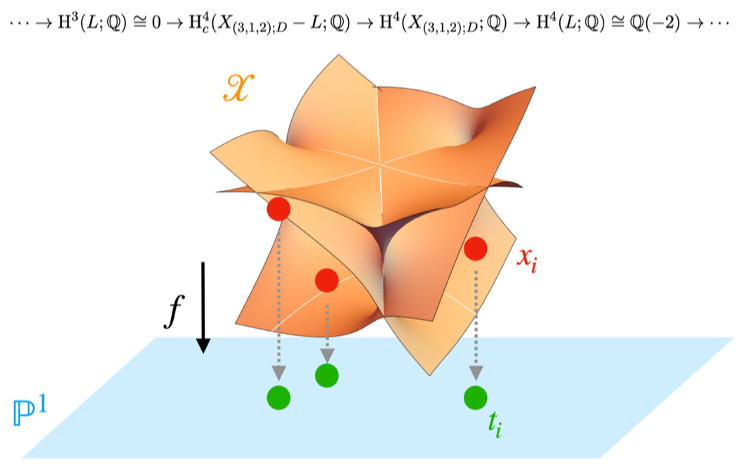By establishing an original connection between Feynman integrals and algebraic geometry, a team led by the IPhT has tackled the challenge of computing “scattering amplitudes,” which form the basis for the interpretation of particle physics experiments, among other things.

Collisions between particles in high-energy accelerators or between two black holes can be analyzed by scattering amplitudes that enable physicists to describe elementary interactions or gravitational radiation.
These interactions are described by a scattering “probability amplitude”. However, calculating these scattering amplitudes remains a mathematical challenge. They are expressed in the form of “Feynman integrals,” which are multidimensional integrals associated with new mathematical functions! The work of theoretical physicists involves identifying the relevant class of functions and developing efficient methods for numerical evaluation.
A team composed of Eric Pichon-Pharabod (PhD student at IPhT and Inria), Pierre Lairez (Inria), Charles Doran (University of Alberta, Canada), Andrew Harder (Lehigh University, USA), and Pierre Vanhove (IPhT) has made progress in this field. By using methods from “Hodge theory,” they were able to identify the algebraic geometry associated with Feynman integrals, and consequently, determine the differential equations satisfied by these integrals. They were then able to calculate them by developing new algorithms.
Their work reveals that Feynman integrals can be associated with various objects in algebraic geometry, including:
- Hyperelliptic, elliptic, or rational curves,
- K3 surfaces,
- Calabi-Yau varieties.
This work is a generalization of results obtained in a previous study conducted by certain members of the team to an infinite number of families of Feynman integrals.
These discoveries were made possible thanks to efficient algorithms developed by the research team, allowing them to study numerous cases that were previously inaccessible with the tools commonly used in physics.
Références:
–Algorithms for minimal Picard-Fuchs operators of Feynman integrals Letters of Mathematical Physics 113(2), 2023
–Motivic geometry of two-loop Feynman integrals, Arxiv
See also La fabrique des savoirs de la DRF


